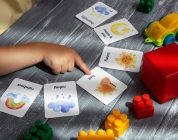![[object Object]](https://www.cheapteflcourses.com/wp-content/uploads/2025/11/159844.jpg)
We often believe that mastering a language requires a vast vocabulary and perfect grammar. We cram flashcards and drill verb conjugations, hoping to achieve fluency. But sometimes, the most profound connections are made not with complex sentences, but with a single, perfectly timed word.
I was reminded of this recently while observing a language class. A student, clearly struggling and frustrated, was trying to articulate a complex thought. The teacher, instead of correcting every minor mistake, simply waited. When the student finally landed on a key noun, the teacher’s face lit up. She leaned forward, pointed to the word on the board, and said with genuine excitement, “Yes! Exactly!”
The Magic in the Acknowledgment
That one word of validation was like a switch being flipped. The student’s posture changed. The frustration melted away, replaced by a spark of confidence. It wasn’t about the grammar being perfect; it was about the idea being understood and celebrated.
This moment highlights a crucial, yet often overlooked, teaching tool: positive reinforcement.
- It builds confidence: Correcting every error can shatter a learner’s willingness to speak. Acknowledging what they get right encourages them to keep trying.
- It reduces anxiety: The fear of being wrong is a major barrier. A simple “yes” creates a safe environment for experimentation.
- It focuses on communication: The ultimate goal is to share ideas, not to construct flawless sentences. Celebrating successful communication reinforces the real purpose of language.
Why “Small Wins” Matter in Language Learning
As teachers and fellow learners, we can get caught up in the long road to fluency. We focus on the end goal, forgetting the importance of the small victories along the way.
- Celebrate the attempt, not just the accuracy.
- Acknowledge the courage it takes to speak up in a new language.
- Focus on one success at a time. Did they use a new word correctly? Did their pronunciation improve? Point it out!
These micro-affirmations are the building blocks of a learner’s self-belief. They transform the classroom from a place of judgment to a place of growth.
How to Harness This Power
You don’t need a teaching degree to apply this principle. Whether you’re a teacher, a traveler, or just chatting with a non-native speaker, you can make a difference.
- Use enthusiastic non-verbal cues: A smile, a nod, or a thumbs-up can be as powerful as words.
- Repeat their correct word with positive intonation: “Ah, ‘market’! Yes, the market is busy.”
- Keep corrections minimal and gentle: Focus on one thing at a time, and always lead with what they did well.
The journey to learning a language is a marathon, not a sprint. It’s paved with moments of doubt and frustration. But as that one simple word of confirmation shows, we have the power to light the path. Sometimes, all it takes is a “Yes!” to keep someone moving forward.




